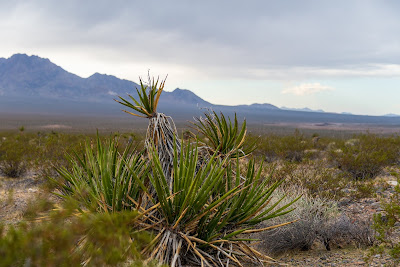BrightSource Suspends Rio Mesa Project
Luckily for the birds using habitat along the Colorado River, part of the bird migratory corridor known as the Pacific Flyway, BrightSource Energy has temporarily suspended its plans to develop the Rio Mesa Solar project. The California Energy Commission (CEC) staff, wildlife officials and conservation groups expressed concern during environmental review that the project's proposed location and design -- involving the solar power tower technology -- puts birds at risk of collision with the project's thousands of mirrors, or risk of eye damage and burning from superheated air above the project.
BrightSource Energy instead plans to focus its investment on developing a solar power tower facility on the Palen Solar project site further to the west along the Interstate 10 corridor, which it bought from Solar Trust of America last year. Solar Trust of America, the front company of German corporation Solar Millennium, planned to build a solar thermal plant before the company went bankrupt.
A Desert Sun article on the project repeats BrightSource Energy's misleading talking points -- that the solar power tower technology reduces environmental impacts compared to solar thermal. The benefits are questionable, if non-existent. The solar power tower technology requires natural gas generation, a natural gas line connection, and presents an increased risk to birds. BrightSource Energy's power tower technology may need less water than traditional solar thermal, but the company requested permission from the CEC in March 2012 to increase its water use for the Ivanpah project, switching to a partial wet-cooling system after the Ivanpah project was already approved.
Below is a video of BrightSource Energy's "environmentally-friendly" mowing technique used at the Ivanpah project:
The Desert Sun also speculates on what role Riverside County's solar fee may have had in BrightSource's decision to suspend the Rio Mesa project, but the company is now investing in another project also in Riverside County. If the solar fee were a hurdle, they would have taken the opportunity to abandon the county. That has not stopped the large-scale solar industry from fighting back. First Solar gave campaign contributions to Riverside Board of Supervisors candidate Republican Kevin Jeffries, helping him claim victory. Jeffries is pro bisphenol-A, anti-rooftop solar, and probably pro-desert destruction, according to his past voting record. During Jeffries' stint in the California Assembly, he had one of the worst environmental voting records. Apparently that is exactly the kind of ally the large-scale solar industry needs.
BrightSource Energy instead plans to focus its investment on developing a solar power tower facility on the Palen Solar project site further to the west along the Interstate 10 corridor, which it bought from Solar Trust of America last year. Solar Trust of America, the front company of German corporation Solar Millennium, planned to build a solar thermal plant before the company went bankrupt.
A Desert Sun article on the project repeats BrightSource Energy's misleading talking points -- that the solar power tower technology reduces environmental impacts compared to solar thermal. The benefits are questionable, if non-existent. The solar power tower technology requires natural gas generation, a natural gas line connection, and presents an increased risk to birds. BrightSource Energy's power tower technology may need less water than traditional solar thermal, but the company requested permission from the CEC in March 2012 to increase its water use for the Ivanpah project, switching to a partial wet-cooling system after the Ivanpah project was already approved.
Below is a video of BrightSource Energy's "environmentally-friendly" mowing technique used at the Ivanpah project:
The Desert Sun also speculates on what role Riverside County's solar fee may have had in BrightSource's decision to suspend the Rio Mesa project, but the company is now investing in another project also in Riverside County. If the solar fee were a hurdle, they would have taken the opportunity to abandon the county. That has not stopped the large-scale solar industry from fighting back. First Solar gave campaign contributions to Riverside Board of Supervisors candidate Republican Kevin Jeffries, helping him claim victory. Jeffries is pro bisphenol-A, anti-rooftop solar, and probably pro-desert destruction, according to his past voting record. During Jeffries' stint in the California Assembly, he had one of the worst environmental voting records. Apparently that is exactly the kind of ally the large-scale solar industry needs.



Comments
Post a Comment